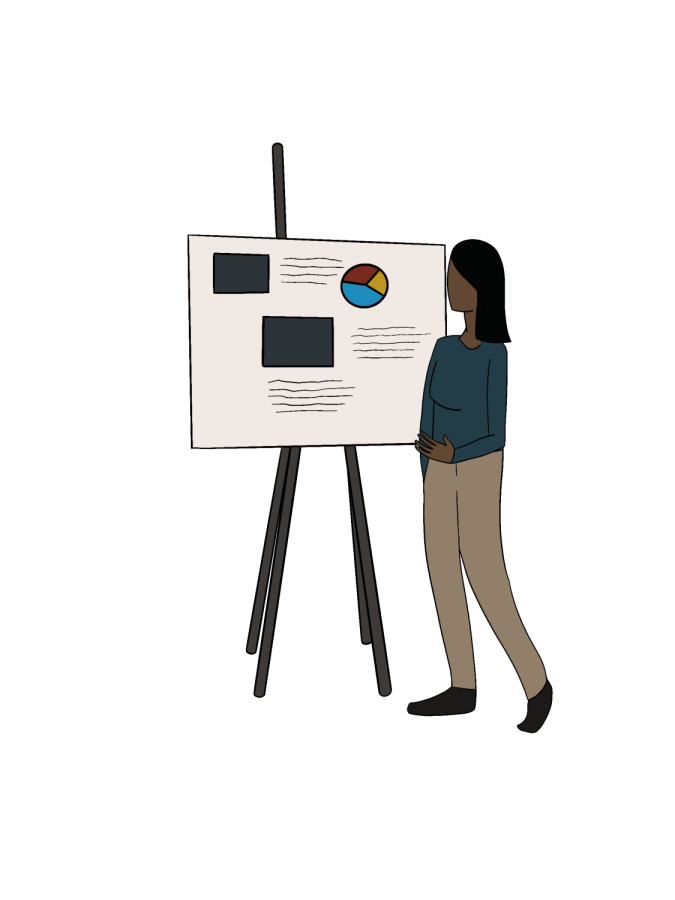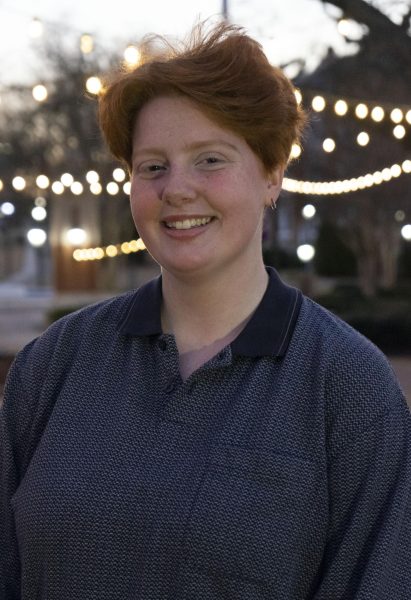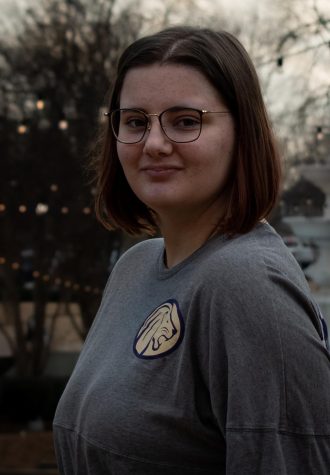Scholar Day showcases student research
May 1, 2023
On April 14, Collier Library’s first floor housed over 50 student research presentations during an annual event called Scholar Day.
Scholar Day began as part of a previous university Quality Enhancement Plan focused on student research literacy. Since then, the student research showcase has taken various forms, but the focus has remained unchanged.
“The purpose of it is to highlight the university’s student community’s investment in research,” said Dr. Matthew Price, Director of the Center for Premier Awards and Scholarly Engagement. “For me, that’s research broadly defined. English research looks radically different from science research. What we try to do is keep that definition so broad that every student sees themself within it, which is why we don’t call it ‘Research Day.’ We call it Scholar Day because every student has scholarly attributes, but they might not see themselves as researchers, even though they are being scholars in their field. It’s a bigger focus to try to draw more people into the conversation.”
Because so many students get involved in Scholar Day each year, most of the interest to participate in the event is organic. This, combined with faculty members pushing students to present their research, has led to a massive growth in the amount of participants this year as opposed to years past.
One of the students that presented at this year’s Scholar Day was Hyungji Yang, a secondary education major with a concentration in mathematics. She presented her research on game-based learning in math.
“My family’s business is about creating educational board games,” said Yang. “My mom also taught math, and she raised four kids including me, so she wanted to make board games that can be played by all ages. For me, because I want to be a math teacher, I want my students to learn math with engagement and fun, so I think game-based learning might be a good strategy to connect fun and math for the students.”
Yang had fun presenting her research to those in attendance, and she believes it will be beneficial to use the knowledge she gained through this project with her future students.
“Presenting my poster cleared my mind and organized my thoughts about how to use game-based learning in class environments,” Yang said. “It really helped me to be able to use it in my future job someday.”
Another student who presented was Sarah Grace Pepper, a geography major whose research was on the topic of the epidemic of feral hogs and their destructive consequences. They presented on this topic as part of their Capstone Project.
“Feral hogs are one of the worst invasive species in the United States,” said Pepper. “They’ll destroy any kind of crops or anything you have, so there’s no profit. Recently, they’ve been in residential areas, and they can run up to 40 miles an hour, so it’s not safe. It’s mainly giant pest control.”
Pepper was excited to get to show others their research in a safe learning environment, which will help them in their future career.
“I’m a bit of an introvert, so I always get nervous speaking in front of people, but it was easier for me because it’s more of a one-on-one conversation,” Pepper said. “I worked on my public speaking skills before going into the workforce, and I made connections.”
Some of these connections were made possible by the pairing of Scholar Day with Transfer Day. Price hopes that, by bringing current and potential students together in a setting like Scholar Day, the university will be able to showcase the diversity of the disciplines that UNA offers, as well as the amount of work that students are doing both independently and with their professors.
“I want prospective students to see that we do these things on campus,” Price said. “They’re all over the place. They’re in every college and almost every discipline. You have access to this. These are things that are happening on campus that you, yourself, can do.”
Price also feels that it is extremely important that students get recognition for the work that they are doing outside of class to make their research come to fruition.
“I want the university to acknowledge what they do,” Price said. “Being a researcher is hard. You have coursework, and all these students are doing this on the side. They’re doing this on top of what they do. A lot of them are involved in other things. That’s a lot of time, that’s a lot of investment and that’s a lot of hard work. I think it’s worth it for the university to say thank you. I want it to be a day of celebration for them. We wouldn’t be fulfilling the mission of what a university should be doing for its students without this stuff that you do.”





![Caleb Crumpton [COURTESY OF UNA SGA]](https://theflorala.com/wp-content/uploads/2024/07/caleb-crumpton-courtesy-of-SGA-425x600.jpg)






